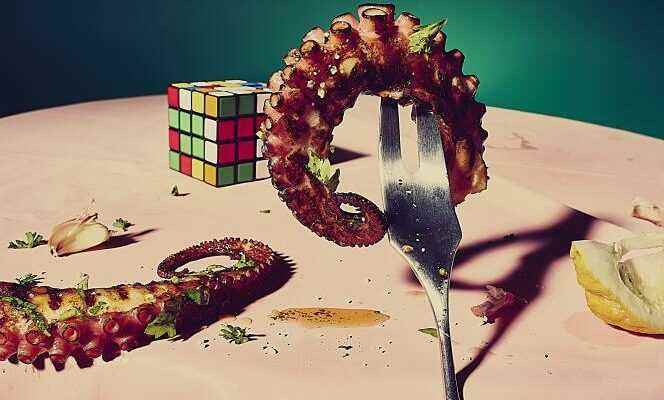Ldrooling in the little TER that takes me to Sète station, I think of the octopus feast that awaits me. In this Hérault fishing town, dear to Georges Brassens and Agnès Varda, people worship the “pouffre” (the name of the cephalopod in Occitan) – to the point of having erected it as a statue on the large square facing the city hall. This afternoon, I’ll probably bite into the octopus meatballs at the Fritto restaurant, where Marilou Fassanaro serves them (crispy to perfection) to dip in a squid ink mayonnaise. Tomorrow morning, I’ll get up early to go and buy some of those fresh rock octopus tentacles (to be grilled on the plancha with a good parsley, I’ve been told) that are sold on the stalls. from the De Ranteau fish market, in the central Halles. Later, going up to the Théâtre de la Mer, I’ll stop at Paradiso or La Cettoise to stock up on perfectly golden tielles – these famous local pies, topped with octopus and a slightly spicy tomato sauce. Well settled in the shade of the mole, opposite the marina, I will finally carefully take them out of their cardboard box; before sliding them, as is customary here, with a chilled glass of picpoul-de-pinet from the Thau pond. Only then will I take a moment to collect myself in memory of all the octopuses I have devoured.
It may sound a little strange worded like that, but since I saw The Wisdom of the Octopus (“My Octopus Teacher”, in VO), it is clear that I no longer look at octopuses in the same way. In this documentary series, broadcast on Netflix and awarded at the Oscars in 2021, we start by following the sea trips of Craig Foster, a filmmaker in the Cape Peninsula, in South Africa. During his excursions in the seaweed, the snorkeler meets a young octopus, well hidden in his den, but intrigued by the repeated visits of this artificially webbed human being.
After a few days, the animal finally lowers its guard, comes out of its hiding place and begins to establish a first contact. Between the two entities there is then a daily dialogue, both poetic and disturbing, made up of games, attentions and hands (or suction cups) stretched out towards each other. For a few moments, one has the impression that octopus and man speak the same language: that of affects and feelings. At the sight of these images, taken by the emotion, I could not help seeing the tentacular creature from another angle. A question continues to haunt me: if we manage to communicate with the octopus, and to recognize ourselves in its behavior, can we consider it as one of our fellows?
You have 52.72% of this article left to read. The following is for subscribers only.
